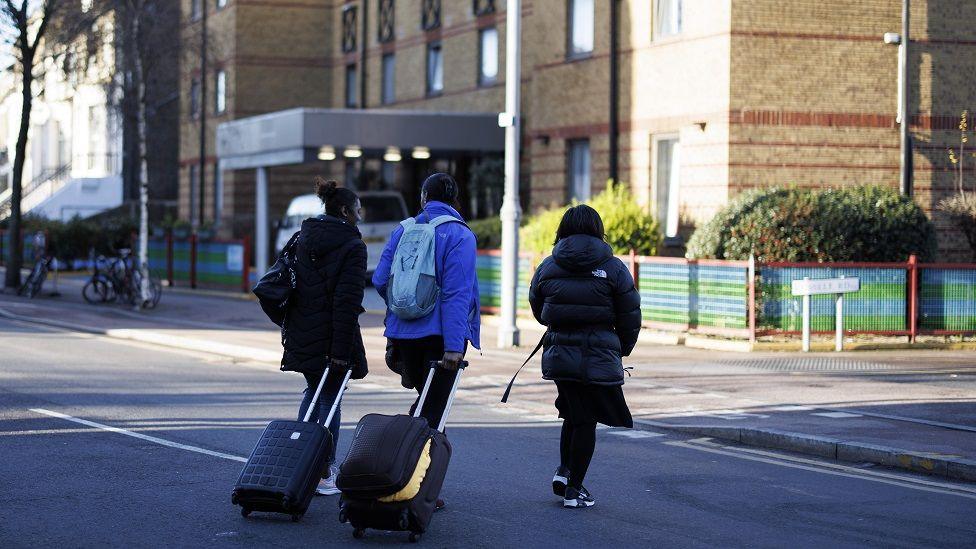Inside an asylum hotel: 'We're too scared to leave'
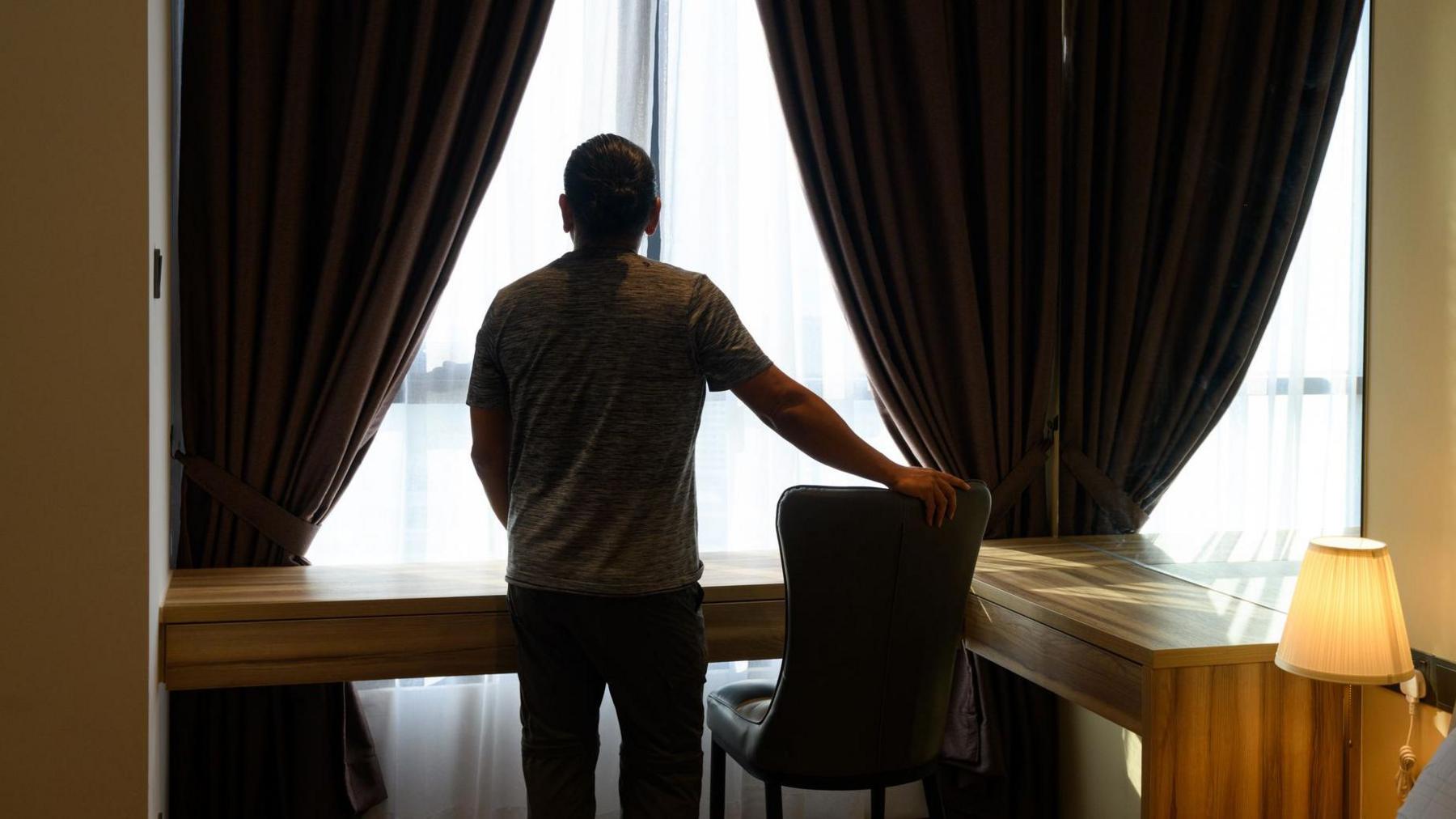
Children inside some hotels are "very worried", according to an asylum seeker
- Published
Asylum seekers living in hotels in the South East say they are in a "state of constant anxiety" amid nationwide demonstrations.
"The protests really scare me," John said - not his real name - who has been living in a Surrey hotel for three years since fleeing persecution in Tanzania.
"Each of us is very afraid to leave," he told the BBC, adding the situation was especially worrying for children staying there.
The Home Office said work continued to close all asylum hotels by the end of this parliament.
'We want to work hard'
Though there had not been protests outside his hotel, John said reading about them made him scared to go outside.
He added that he never expected to see demonstrations, stating that people forgot asylum seekers had escaped challenges back home.
"We are here for peace and to establish normal lives," he said.
Most asylum seekers inside hotels were ordinary people and ready to "work hard", John added.
He said there had not been any "bad reports" about people in his hotel since he began living there in 2022.
John urged the Home Office to process its asylum applications quicker and allow them to work so they could move out of hotels and support themselves.
The government said it inherited a "broken" asylum system and that from a peak of more than 400 asylum hotels in the summer of 2023, there were now fewer than 210.
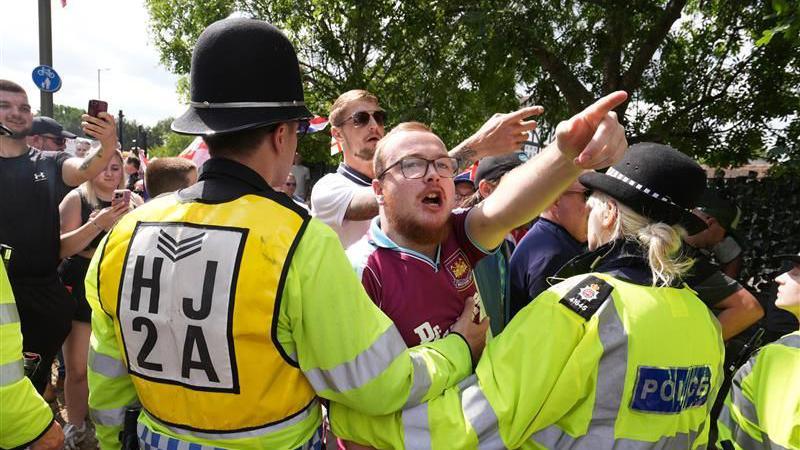
Protests have taken place outside hotels housing asylum seekers across the UK
The government is legally required, external to house asylum seekers if they would otherwise be destitute.
A large backlog of asylum applications and shortage of long-term housing options have led to a "much larger reliance" on hotels since 2020, according to the University of Oxford's Migration Observatory.
Protests have taken place outside asylum hotels across the country in recent days and weeks, including one in Horley on Saturday.
Protesters said they were concerned asylum seekers posed a risk to the community.
One anti-immigration protester told the BBC that she felt the safety of her daughters was "degrading on a daily basis".
Another said: "I'm not saying all refugees are rapists, but their culture is different to ours. It shouldn't be dumped on us."
The protest in Horley came after Qais Al-Aswad, a 26-year-old resident at the Four Points by Sheraton Hotel, was found guilty on 20 August at Staines Magistrates' Court of sexual assault.
Counter demonstrations have also taken place in defence of asylum seekers.
'We are not your enemy'
A South Asian woman, who is staying at a hotel in Sussex, said the protests made her relive her past trauma.
She added that she also had safety concerns inside the accommodation.
Maryam - whose name has been changed - said staff had entered her room while she was sleeping without her permission and someone had tried to unlock her door.
"People who work in this place, they don't see you as equal human beings," she said.
"There is systematic racial abuse. Your rights are not respected - they don't care about your wellbeing."
Maryam added that conditions in her room were "dirty and damp".
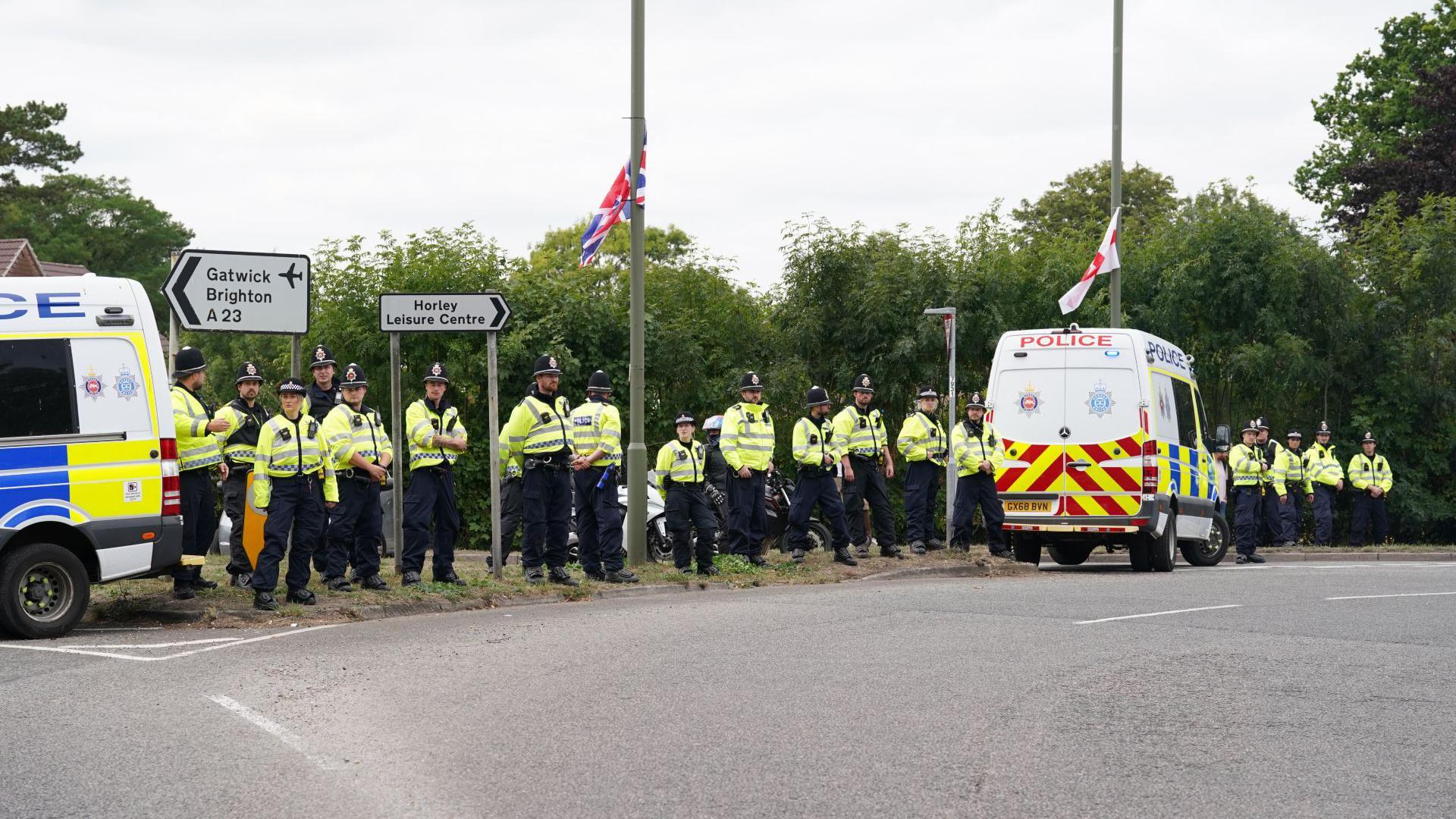
Officers have policed protests outside asylum hotels
Though her basic needs were being met, Samia - an asylum seeker from Tanzania – said "very cramped" conditions inside her Sussex hotel and sometimes rotten food were making her physically weaker.
Her name has also been changed for the purposes of this report.
Protests outside nearby hotels made her feel "unwelcome" and "isolated" from the wider community, she added.
"Sometimes I feel invisible - like my life is on pause," Samia said.
She added that some people were protesting because they had been given "false information".
"They believe we are taking resources or that we came here for benefits, which is not true. Most of us came because our lives were in danger," she said.
Asylum seekers receive a weekly allowance of £49.18 to cover living costs, like food, clothing and toiletries, according to the government.
Those in accommodation where meals are provided get £9.95 per week.
"We did not choose to live in a hotel," Samia added, claiming that it would be better to house asylum seekers in communities to help them integrate.
"We are waiting for a decision on our future," she said. "We left everything behind - our families, homes, and jobs to be safe.
"We are not your enemy."
Follow BBC Sussex on Facebook,, external X, external and Instagram., external Send your story ideas to southeasttoday@bbc.co.uk, external or WhatsApp us on 08081 002250.
Related topics
- Published23 August
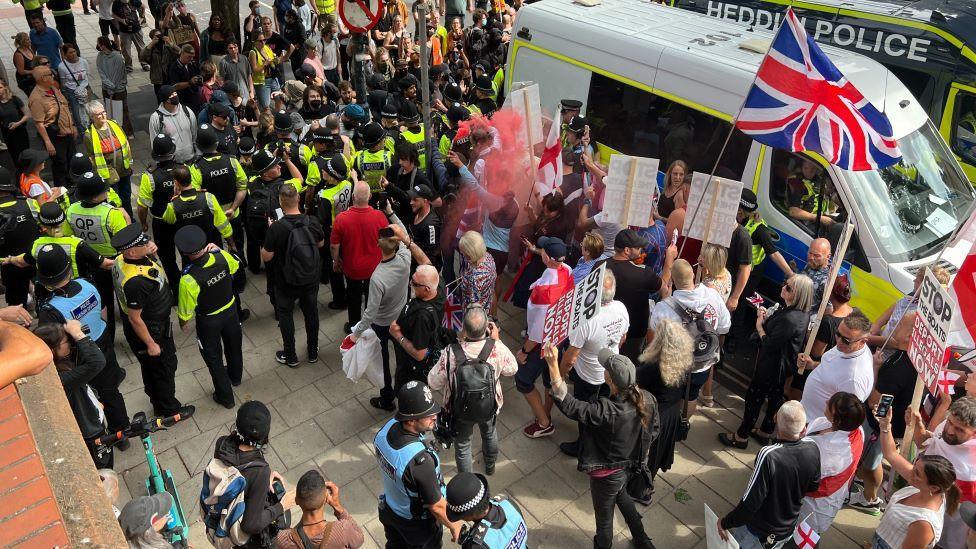
- Published21 August
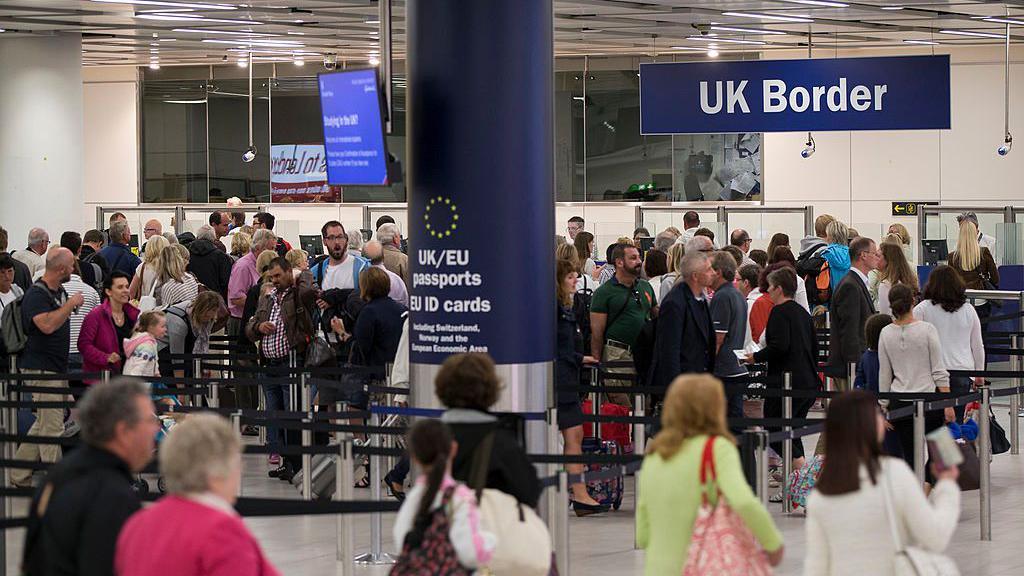
- Published20 August
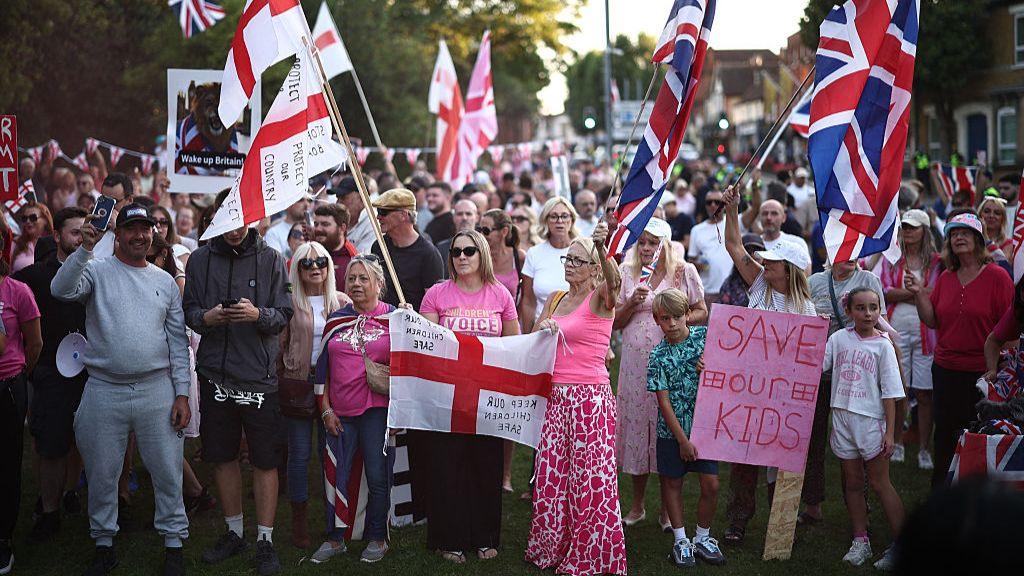
- Published21 August
